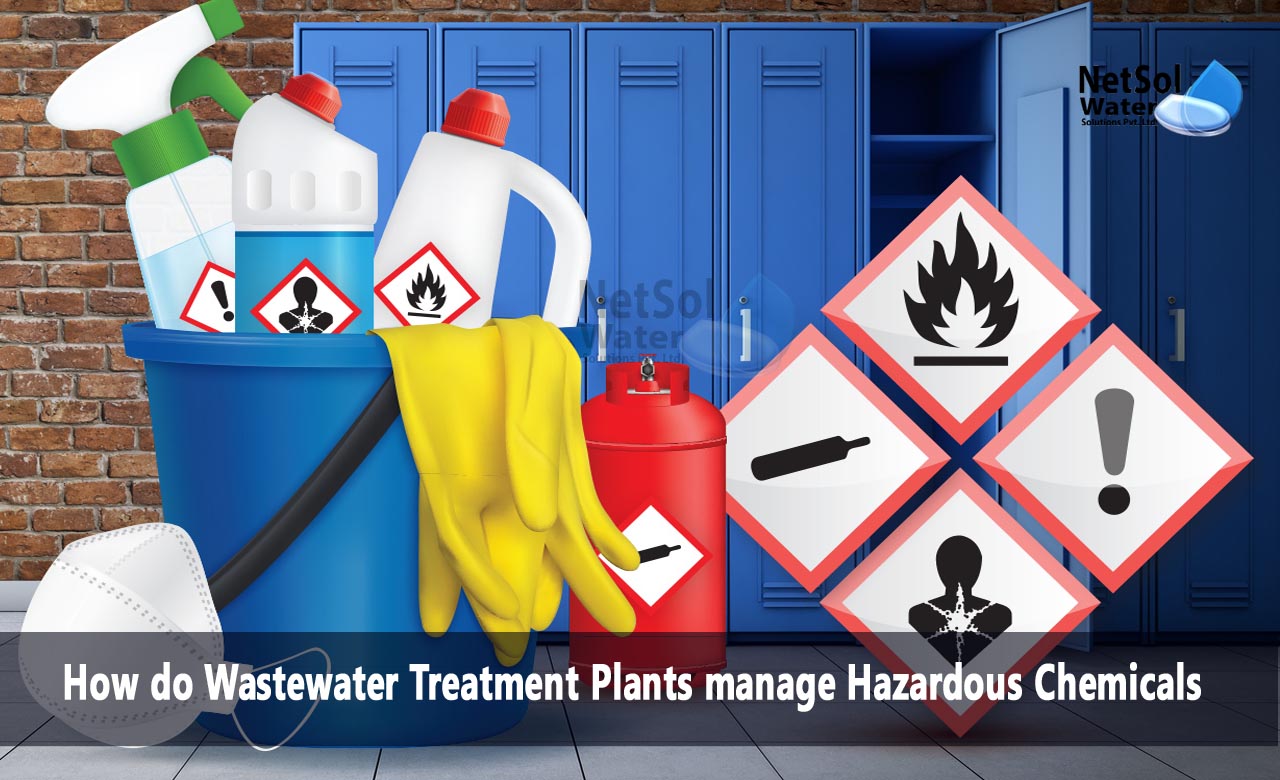How do Wastewater Treatment Plants manage Hazardous Chemicals?
Wastewater treatment plants assume a critical part in safeguarding the climate and general wellbeing by treating and filtering the water that goes down our channels and latrines. In any case, the wastewater created by modern, business, and private sources frequently contains risky synthetic compounds that can be destructive to both the climate and individuals working in these offices. Dealing with these synthetic compounds is a basic part of wastewater treatment. In this blog, we will investigate how wastewater treatment plants oversee risky synthetic compounds to guarantee protected and powerful treatment processes.
Dangerous Substance Distinguishing proof
The most important phase in overseeing perilous synthetic compounds in wastewater treatment plants is to recognize and sort them. Perilous synthetics can incorporate weighty metals, natural mixtures, solvents, and different poisons. Numerous wastewater treatment plants utilize experienced staff and insightful gear to screen and evaluate the arrangement of approaching wastewater routinely.
Safe Capacity and Dealing with
When unsafe synthetic compounds are recognized, it is fundamental to store and deal with them securely. These plants keep severe rules and guidelines to guarantee the protected stockpiling of synthetics, frequently utilizing particular capacity regions, compartments, and names. Also, laborers get preparing on the best way to deal with these synthetic compounds securely, including utilizing individual defensive gear (PPE) and following appropriate strategies.
Substance Balance and Change
Now and again, synthetic compounds in the wastewater should be killed or acclimated to make the treatment cycle more powerful and less hurtful. This cycle frequently includes adding reagents to the wastewater to kill pH, eliminate explicit impurities, or further develop the general treatment proficiency. Appropriate dosing and control are fundamental to abstain from going too far, which can prompt different issues.
Treatment Cycles
Wastewater treatment plants utilize an assortment of treatment cycles to eliminate unsafe synthetics from the water. These cycles can include:
a. Actual cycles: These strategies include the partition of foreign substances utilizing actual means like sedimentation, filtration, and buoyancy. These cycles eliminate strong particles, suspended matter, and a few natural mixtures.
b. Substance processes: Synthetic medicines incorporate coagulation and flocculation, where synthetics are added to the wastewater to shape particles that can be all the more effortlessly taken out. Precipitation and oxidation cycles may likewise be utilized to eliminate explicit impurities.
c. Natural cycles: Natural treatment frameworks, for example, actuated muck and organic filtration, use microorganisms to separate natural contaminations. These cycles are especially viable for natural synthetic compounds and supplements.
d. High level treatment advances: now and again, high level treatment innovations like layer filtration, bright (UV) sterilization, and opposite assimilation might be utilized to treat water all the more really, particularly while managing unsafe synthetic substances impervious to regular treatment.
Observing and Testing
Nonstop observing and testing are fundamental to guarantee the viability of the treatment cycle and to immediately distinguish any issues. Wastewater treatment plants routinely test and break down the emanating to guarantee it satisfies administrative guidelines and doesn't contain dangerous synthetics in unsafe fixations.
Crisis Reaction Plans
Regardless of all safety measures, mishaps can occur in wastewater treatment plants. Accordingly, these offices should have strong crisis reaction plans set up. These plans incorporate conventions for tending to compound spills, fires, or different crises instantly. Preparing and customary drills are additionally important for the planning to guarantee the security of plant staff and the climate.
Administrative Consistence
Consistence with natural guidelines is non-debatable in wastewater treatment. Plants should comply with government, state, and nearby regulations in regards to the release of treated wastewater. Infringement can prompt fines and endorses, focusing on administrative consistence for these offices.
Conclusion
Overseeing dangerous synthetic substances in wastewater treatment plants is a mind boggling and complex cycle that requires severe adherence to somewhere safe and secure conventions, consistent observing, and powerful treatment advancements. The endeavors of wastewater treatment plants are fundamental in safeguarding the climate and general wellbeing. By recognizing, putting away, treating, and observing unsafe synthetics in wastewater, these offices guarantee that the water got back to the climate is protected and clean. Their obligation to these standards assumes a critical part in keeping up with the harmony among modern and natural requirements.
Netsol Water is Greater Noida-based leading water & wastewater treatment plant manufacturer. We are industry's most demanding company based on client review and work quality. We are known as best commercial RO plant manufacturers, industrial RO plant manufacturer, sewage treatment plant manufacturer, Water Softener Plant Manufacturers and effluent treatment plant manufacturers. Apart from this 24x7 customer support is our USP. Call on +91-9650608473, or write us at enquiry@netsolwater.com for any support, inquiry or product-purchase related query.



